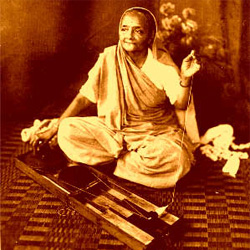Living a Sacred Life: Mrs. Gandhi’s Toilets
March 1, 2015
 When Mahatma Gandhi and his wife Kasturba founded a community in India, they based it on a philosophy of inclusivity and mutual respect. Underlying it was the perception of the sacred oneness of all beings, seeing ourselves in others and others in ourselves. Everyone was treated equally and everyone took turns to do all the day to day tasks, including the Mahatma and Mrs. Gandhi.
When Mahatma Gandhi and his wife Kasturba founded a community in India, they based it on a philosophy of inclusivity and mutual respect. Underlying it was the perception of the sacred oneness of all beings, seeing ourselves in others and others in ourselves. Everyone was treated equally and everyone took turns to do all the day to day tasks, including the Mahatma and Mrs. Gandhi.In India, with its traditional hierarchical caste system, this was revolutionary. Even today, only lower castes do the work of street cleaning, garbage collection and cleaning public toilets. But when it came to Mrs. Gandhi’s turn to clean the public toilets of the community, Kasturba, as a high caste Indian, refused to do so. The couple had married when they were both very young and despite all the challenges and turbulence of their lives, they remained together for 62 years until Kasturba passed over. Yet the conflict of Mrs. Gandhi’s refusal to clean the toilets almost caused them to part.
Gandhi was insistent though that for someone to live a sacred life, they should treat everyone else equally and not ask someone to do something they wouldn’t be prepared to do themselves. And he was adamant that every decision of a society should be discerned from the perspective of its poorest and weakest members.
Their struggle of wills was difficult for both. Afterwards Gandhi said that he was ashamed of causing his wife pain and vowed not to hurt anyone for the rest of his life. Eventually though Mrs. Gandhi agreed to clean the community toilets and ultimately even came to view the task as a sacred act.
Both of them aspired to live sacred lives, discovering and understanding at the most basic level, that as Gandhi said; “The best way to find yourself, is to lose yourself in the service of others.”


